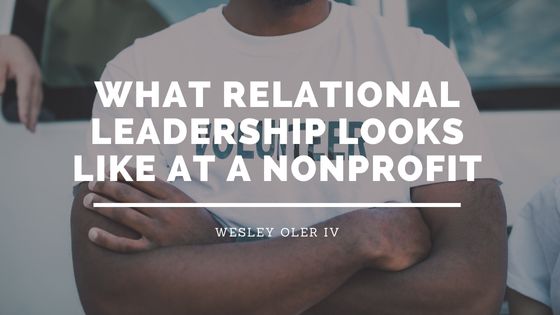Relational leadership in the context of a nonprofit organization involves prioritizing and nurturing meaningful relationships with various stakeholders, including employees, volunteers, donors, beneficiaries, and community partners. This leadership approach emphasizes collaboration, empathy, and open communication to create a supportive and cohesive environment.
Here’s what relational leadership looks like at a nonprofit:
Open Communication:
Relational leaders in nonprofits encourage open lines of communication at all levels of the organization. They actively listen to the concerns, ideas, and feedback of employees, volunteers, and other stakeholders.
Empathy and Understanding:
Relational leaders strive to understand their team members’ needs, aspirations, and challenges and the communities they serve. They approach situations with empathy and compassion, recognizing that the nonprofit sector often deals with sensitive issues and vulnerable populations.
Collaborative Decision-Making:
Rather than making decisions in isolation, relational leaders involve their team members and stakeholders in decision-making. They value diverse perspectives and seek input from those directly affected by the decisions.
Building Trust:
Trust is the foundation of relational leadership. Leaders in nonprofits work to earn the trust of their teams by demonstrating consistency, integrity, and reliability. They keep their promises, admit mistakes, and take responsibility for their actions.
Investing in Professional Development:
Relational leaders prioritize the growth and development of their team members. They provide opportunities for training, skill-building, and career advancement. This investment benefits the individuals and strengthens the organization as a whole.
Recognition and Appreciation:
Nonprofit leaders who practice relational leadership make a point to recognize and appreciate the efforts of their team members and volunteers. Celebrating achievements and milestones boosts morale and reinforces a sense of belonging and purpose.
Networking and Partnership:
Relational leaders understand the importance of networking and building strategic partnerships. They engage with other nonprofits, community organizations, and stakeholders to collaborate on shared goals and maximize the positive impact of their work.
Flexibility and Adaptability:
Nonprofits often face rapidly changing environments and unexpected challenges. Relational leaders are adaptable and flexible, able to navigate uncertainties while keeping their team motivated and focused on the mission.
Long-Term Vision:
Relational leaders in nonprofits clearly envision the future and communicate it to their teams. They ensure that every member understands how their contributions contribute to the organization’s mission and overall impact.
Conflict Resolution:
Inevitably, conflicts arise in any organization. Relational leaders address conflicts with patience and respect, seeking solutions that consider all parties’ well-being.
Celebrating Diversity:
Nonprofit leaders who practice relational leadership celebrate diversity and inclusivity. They create an environment where people from different backgrounds, experiences, and perspectives are valued and included.
In a nonprofit that focuses on serving the greater good, relational leadership is a powerful approach that aligns with the organization’s mission and values. By nurturing relationships, fostering collaboration, and prioritizing the well-being of all stakeholders, relational leaders create a positive and impactful organizational culture that drives meaningful change.
